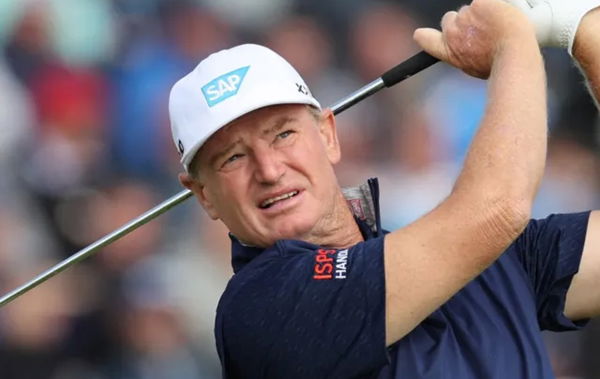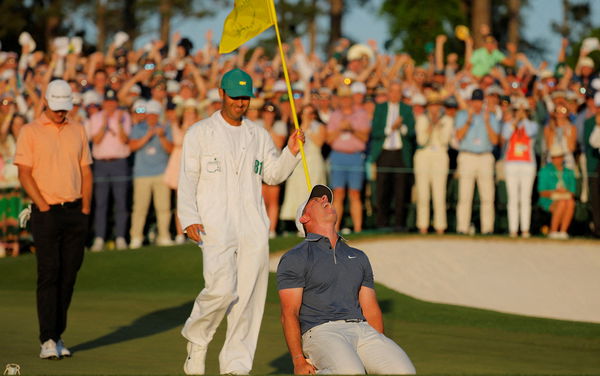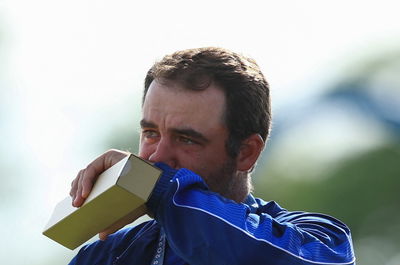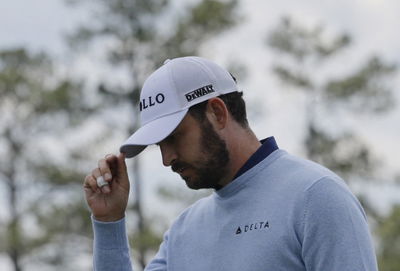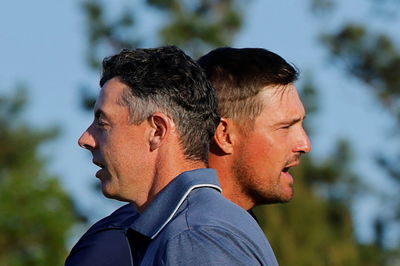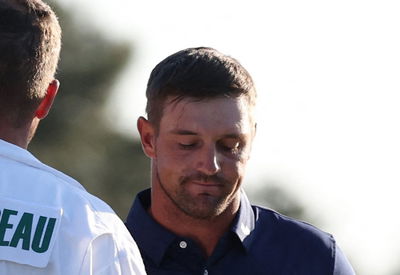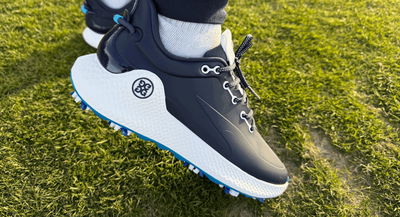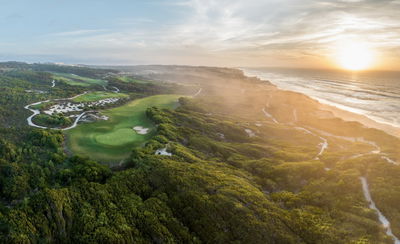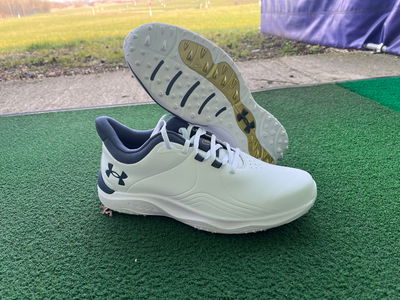England Golf Director Sarah Stirk discusses the future of women's golf and how she aims to "really make a difference"
England Golf's newest director sits down for an exclusive interview with GolfMagic to discuss what the future holds for women's golf in England.
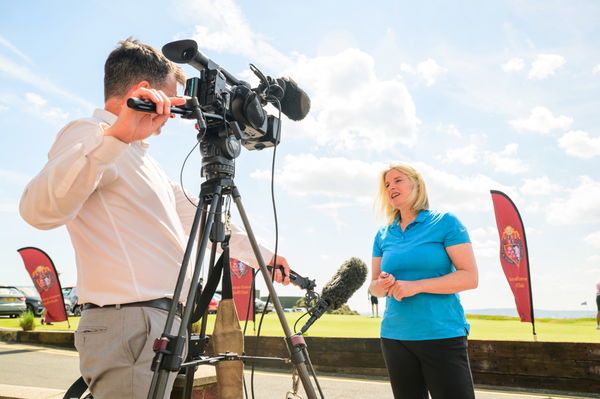
Golf's level of equality and diversity are "massive passions" for Sarah Stirk, and she's hoping to improve both in her new role as an independent director at England Golf.
Stirk, who was appointed to the role in April, brings with her a wealth of experience as one of Sky's most prominent pundits. Her years in the role have equipped her with the skills and knowledge she hopes can make a real difference in advancing the profile and accessibility of women's golf in England.
With the spotlight firmly on women's sport thanks to the likes of Nelly Korda, Charley Hull and England's Lionesses, Stirk has highlighted the importance of exposure, role models and the governance of the game for continuing to advance and shape the future of women's golf.
Having now spent just over three months in the role, we sat down with Stirk to discuss the future of women's golf in England and how she hopes to help it thrive and prosper.
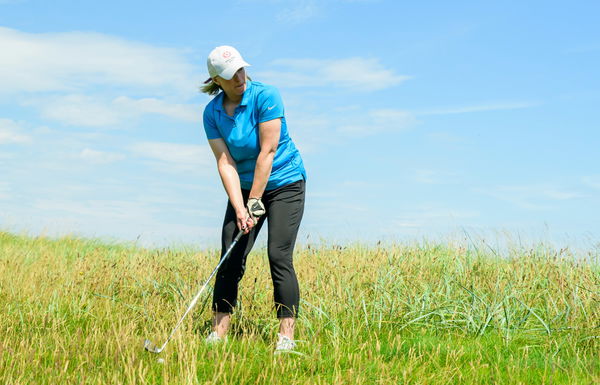
What are your aims for the next five years at England Golf, and what impactful change do you want to see in the foreseeable future?
"Yeah, it's a big honour to be appointed. Obviously, I've spent a lot of time in the media landscape, but I've also had some commercial background and I just think the experience that I've had in golf and being at the forefront of golf, I wanted the opportunity to come in at board level and to have a bit of influence and be able to really make a difference.
"It's a really exciting opportunity. The big thing for me being a female golfer is equality and diversity are massive passions of mine. I would like to be able to make a real difference when it comes to the women's game; I obviously cover a lot of women's sports for Sky. I've seen the proliferation of women's sports over the last five years; it's incredible, isn't it?
"Just seeing women's, not just golf, but women's sport - it's on TV more, it's on the back pages, it's on the front pages - we've had the success of the Lionesses. It's just getting more media coverage, and Sky is showing more golf than ever before.
"There's more interest in the game generally since covid, so people are playing more and participation’s up, but how do we convert that interest into golf club memberships?
"Women are playing, they're getting into the game, but it’s not translating into club membership; they're not saying, 'Okay, now I'm going to join a golf club'. I still think that's where, for me, the big barriers are. Some golf clubs are amazing, and some clubs just aren't; they're not that welcoming to girls and women, and I think we all need to work and change and keep changing the perception of golf but just make sure that we can keep the game as inclusive and accessible as possible.
"So for me, my biggest impact would be to continue the work for inclusivity but to really, at the end of my term, be able to say, okay, the participant levels have increased to this, the golf club membership for women has increased to this. That I think would be a huge success."
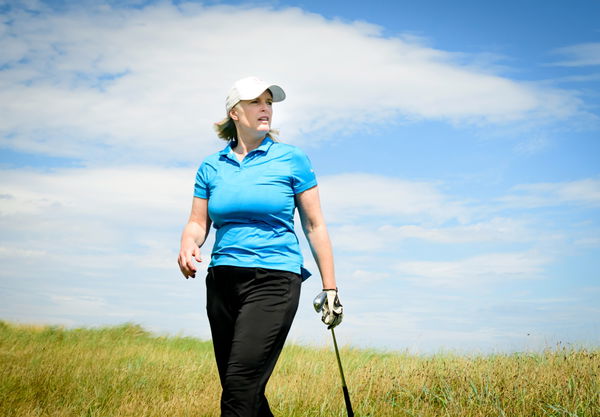
Currently only 14% of memberships in England are held by women and girls. From the top down to grass roots level, how do you go about improving that number and make golf more appealing so that female golfers join a club, stay and feel welcome?
"I think some of it does come from the perception, and that is a slow process and that has changed massively and that comes from people like Ian Pattinson, the chairman of England Golf, who's a big advocate for women's golf. He is inclusive, and he's trying to grow the game for the betterment of everyone. Martin Slumbers at The R&A, the outgoing chief exec, they genuinely believe and want the change. So, I think, if you're seeing the big leaders in those positions are advocates for the women's game, that helps.
"I think the female side of things on TV, if we've got the role models, that's massive. The media coverage is really key. But I think golf clubs are key and that's where England Golf has to work really hard with its members. That has to come from us at board level saying, 'Right, what's our strategy, what manifestos can we implement, what guidelines can we implement to these golf clubs', and that's the challenge because some golf clubs, get it, some golf clubs get sustainability, some golf clubs get these massive topics, some don't necessarily have a massive push for the women's game. So it's converting all of them to do the right thing, and that's the big challenge.
"I think specifically it comes down to things like dress code, it comes down to membership, membership is key. I've got a two-and-a-half-year-old, I want flexibility with my membership and driving ranges. A classic example, I'm a member at a really nice course in North Yorkshire called Easingwold, we've got a driving range, but people don't know that you don't have to be a member to use the driving range.
"That to me is just awareness, that's just putting something in a local paper or having a sign changed at the front of the golf club and say, everyone welcome, not just members, really kind of spelling it out more. More beginner sessions, more girls sessions, more junior sessions, more just female specific, like a working mum's golf session. It's all these little initiatives that we can work on with England Golf and pass down to the golf clubs to make it more open."
You spoke about being told to take a baseball cap off when you first visited a club as a junior. How much have you seen inclusivity change in golf since you started playing and has it been big enough?
"It's been massive, but as you know, golf has a lot of history, a lot of tradition; it doesn't move as fast. Yeah, that's just the nature of the sport and it's very hard to change that overnight. And we don't need it to be a radical step. It just needs to move in the right direction each and every year, and we are moving in the right direction.
"When I first (visited a golf course), I mean that put me off. I was like, well, I don't want to go back. You know it is much more relaxed now, you look at women on TV, and some of them wear yoga gear, and that's what it should be like. And yeah, we still need to look smart, but you can look smart and cool.
"I think that's really important, but we have made massive strides. It comes back to why it's being so slow, the women's sports movement; why did it take so long? It's crazy."
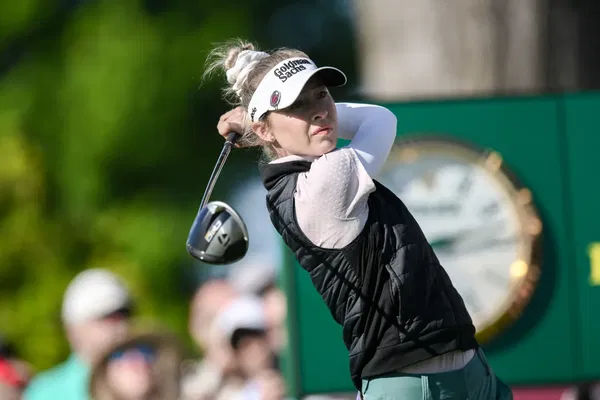
Women's sport has really exploded in terms of public interest in the last ten years it seems, and a big part of that is down to the success of high profile athletes like the lionesses and Nelly Korda. How much of a part does TV exposure have to play in growing women's sport and in this case golf?
"I think it's a bit of a chicken and egg situation. If people say nobody is watching women's sport, it's because it's not on TV. If it comes on TV, people will watch it. It needs to be there for people to absorb and take in, that's how we fall in love with it."
Has having a child inspired you to want to make a big impact on improving inclusivity in golf?
"It has, for sure; it's crazy the world he's going to grow up in and how that's going to be. I've already got him his little set of plastic clubs, and if he doesn't play golf, I'm going to be really disappointed!
"Joking aside, for sure, he's a big inspiration, and I'd love when he gets older to have lessons and to join a golf club, but to be part of an equal footing so he's in a group of juniors and it's mixed, and there's no separation between young girls and boys.
"But yeah, it's a massive inspiration for me because I always say golf's a wonderful metaphor for life. It teaches us some amazing qualities, and I'm a big fan of that, a big advocate and if he can play golf and learn some of the discipline, the etiquette, the hard work, the patience. I mean, I'm the world's most impatient person, but golf has taught me more patience than anything else. If he can learn those qualities, that would be really special."
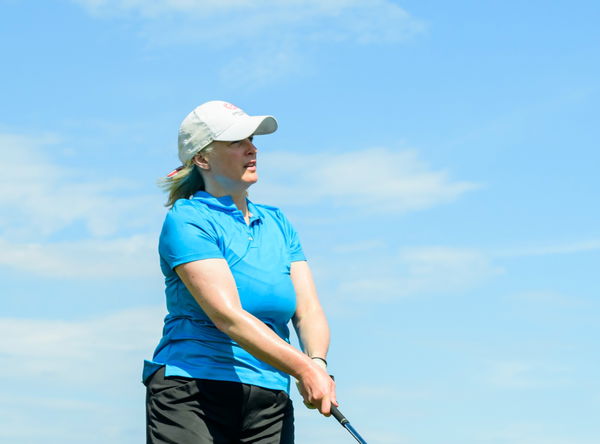
You've been one of the most visible female pundits in the sporting world for some time now. When you first started in the industry did you feel like there was extra pressure on you because you were a woman, and did those around you help and guide you, or did it feel like you were fighting your own corner?
"Yeah, I think this is maybe my 13th year at Sky, and obviously, I've been in the media before then as well. And when I first got into it, I think the kind of female presence was seen as a bit of a token. I had obviously seen Hazel Irvine, Gabby Logan, Clare Balding and Sue Barker, these amazing sports presenters and broadcasters, and they were my inspiration. And it was that four, wasn't it?
"You look now, there are so many females. But I do think at the start we were seen as a bit of a token, and I think I was sort of at the start of the movement that said, okay, we need to kind of tick that box, we need to show more visibility.
"So I felt a massive pressure, but I always felt like I deserved to be there. I knew that I knew my stuff. I think there was an extra element at the beginning where you tried to prove yourself, whereas obviously now, I love sport. I love golf. I'm passionate about it. I don't need to prove that; that's evident. I'm not faking, but at the start, it was tough. I think it's so much more welcoming now. There are so many more opportunities for females in sport. Whereas, when I started out, it was so hard, that journey, that road to get there was bloody hard, so it has got easier, and I think it's more accepting now."
